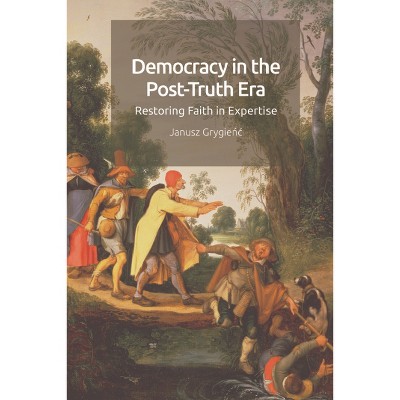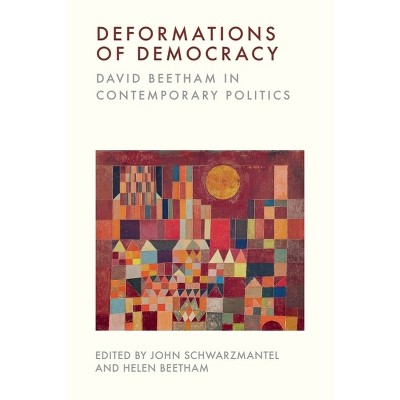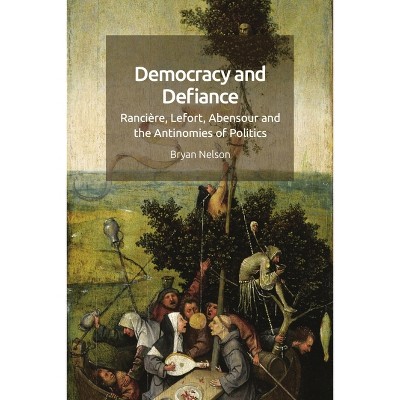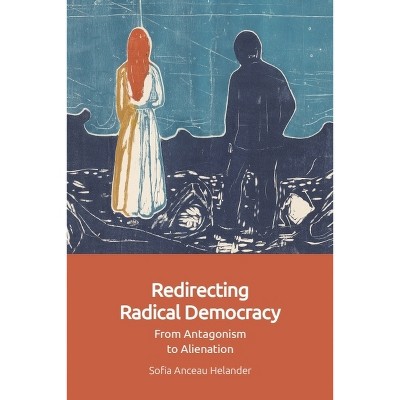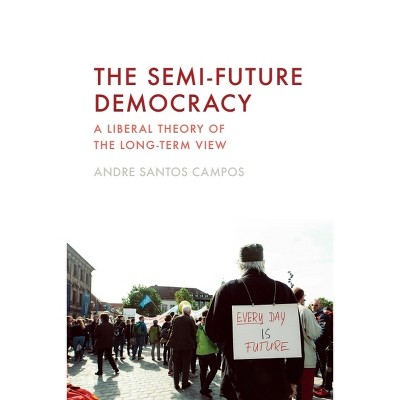Democracy and the Future - by Michael K MacKenzie & Maija Setälä & Simo P Kyllönen

About this item
Highlights
- This book brings together political philosophers, democratic theorists, empirical political scientists and policy experts to examine how democratic systems might be designed so that the long-term consequences of our decisions are considered in policymaking processes.
- About the Author: Michael K. MacKenzie is Associate Professor of Political Science at the University of Pittsburgh.
- 324 Pages
- Political Science, Political Ideologies
Description
About the Book
Explores the challenges and possibilities of long-term governance in democratic systems
Book Synopsis
This book brings together political philosophers, democratic theorists, empirical political scientists and policy experts to examine how democratic systems might be designed so that the long-term consequences of our decisions are considered in policymaking processes. It examines these topics from many different perspectives - it is interdisciplinary and globally oriented - but it also explores Finland as an example of how future-regarding governance might be done. Finland has one of the most advanced governmental foresight systems in the world, including a unique parliamentary institution called the 'Committee for the Future', and it has enjoyed a stable, multiparty government for decades. The contributors identify tensions between the present and the future, as well as between reversibility and commitment, independence and politicisation, and trust and critique, which have to be navigated in order to achieve long-term, collective goals. The book concludes that elite-driven institutions should be complemented by robust institutions for public participation and deliberation in order to retain responsiveness while at the same time forging public commitments for future-regarding action.
From the Back Cover
Explores the challenges and possibilities of long-term governance in democratic systems This book brings together political philosophers, democratic theorists, empirical political scientists and policy experts to examine how democratic systems might be designed so that the long-term consequences of our decisions are considered in policymaking processes. It examines these topics from many different perspectives -- it is interdisciplinary and globally oriented -- but it also explores Finland as an example of how future-regarding governance might be done. Finland has one of the most advanced governmental foresight systems in the world, including a unique parliamentary institution called the 'Committee for the Future', and it has enjoyed a stable, multiparty government for decades. The contributors identify tensions between the present and the future, as well as between reversibility and commitment, independence and politicisation, and trust and critique, which have to be navigated in order to achieve long-term, collective goals. The book concludes that elite-driven institutions should be complemented by robust institutions for public participation and deliberation in order to retain responsiveness while at the same time forging public commitments for future-regarding action. Michael K. MacKenzie is Associate Professor of Political Science at the University of Pittsburgh. Maija Setälä is Professor of Political Science at the University of Turku. Simo Kyllönen is Lecturer in Research Ethics and Open Science at the University of Helsinki.Review Quotes
This fascinating volume brings together leading political theorists and empirical researchers to illuminate the relationship between democracy and long-term decision-making. Starting from an analysis of the myriad tensions between democratic politics and future-regarding governance, the book goes on to unearth a variety of ways in which well-designed institutions, well-structured deliberations, and farsighted leaders can help democracies manage long-term societal challenges. The volume will be invaluable to both scholars and policymakers seeking to more strongly orient democratic politics toward the future.-- "Alan Jacobs, University of British Columbia"
About the Author
Michael K. MacKenzie is Associate Professor of Political Science at the University of Pittsburgh. His research interests include democratic theory, intergenerational relations, deliberation, environmental policy, political representation, institutional design, and public engagement. He is the author of Future Publics: Democracy, Deliberation, and Future-Regarding Collective Action, New York: Oxford University Press (2021) along with several other books, chapters and articles.
Maija Setälä is Professor in Political Science at the University of Turku. She specializes in democratic theory, with a focus on deliberative democracy, direct democracy, and democratic innovations. She is the author of Referendums and Democratic Government: Normative Theory and the Analysis of Institutions, Basingstoke: Macmillan Press (1999) and several other chapters and articles both in English and Finnish.
Simo Kyllönen is Lecturer in Research Ethics and Open Science at the University of Helsinki. His main research topics are related to intergenerational justice, democratic theory and ethics of climate change. He has contributed to books and journals on climate change, intergenerational ethics and democracy.
Shipping details
Return details
Trending Non-Fiction






